
 Flash News
Flash News
Accident at "Shkalla e Tujanit", truck overturns in the middle of the road, driver injured
Vlora by-pass, work delays and cost increases
Milan are expected to give up on the transfer of Granit Xhaka
Inceneratori jashtë funksionit, përfshihet nga flakët fusha e mbetjeve në Elbasan
Accident on the Lezhë-Shëngjin axis, one injured
The tragedy in Kochan/ Analysis: Lessons from the neighbors' fire
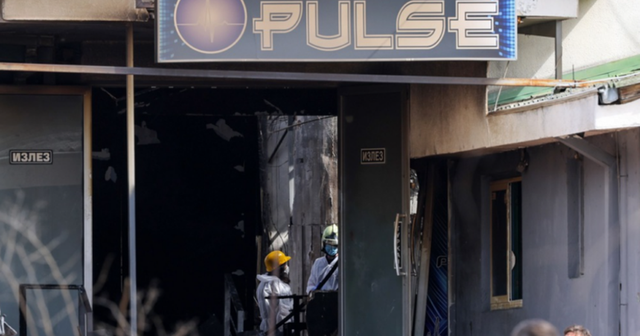
The iron is beaten while it is hot, but the fire is extinguished before it falls. The most recent tragedy that occurred in Kochan, North Macedonia, where a fire in a nightclub caused the loss of 59 lives and the injury of over 150 people, painfully reminds us of the vital importance of fire prevention measures and compliance with legal requirements and technical conditions in premises where there is a gathering of people.
According to reports, the fire was caused by the use of pyrotechnics during a musical performance, while the club was operating in inappropriate conditions. This should not be treated and followed simply as a tragic event in the next news show of a day or two. It should serve as a wake-up call for Albania, to review and strengthen technical safety measures as a whole, including those against fire in public premises and private buildings.
Fires in apartments or offices, and especially in buildings with a concentration of people, or even in hotels and bars, are becoming a serious threat in recent years, as the construction sector has entered a rapid phase. Only in the last few months there have been several such cases, which fortunately have not resulted in loss of life.
As the volume of construction is increasing with multi-storey buildings, crossings and escape routes are being restricted and disappearing, and the trend for construction is expected to continue with momentum, based on new construction permits that reached a record 2.5 millionm2 in 2024, the Albanian state still does not have an efficient monitoring and intervention infrastructure.
Currently, Albania does not have the Construction Code for fire protection nor human resources that guarantee fire protection. Tirana has been involved in a rapid urbanization, which is not taking into account the standards with which it is built today, such as spaces, or fire-resistant materials.
The construction of multi-storey towers further increases the risk of fires, as none of them has even the most minimal element, such as p.sh. emergency stairs and a one-floor fire would block exits from the floors above. The recent fires also highlighted the fact that in addition to construction volumes, now more and more investors are using fire-fueling materials, p.sh. facades with insulation that often spread the fire.
Windows are also plastic, which burn faster than metal (duralumin) and generally terrace materials and doors used in the construction process favor fire. Experts have earlier affirmed for "Monitor" that fire protection in our country is currently entirely amateur and such is risk management. Installations of fire-fighting systems in homes are mostly in the consciousness of the investor and engineers.
Even when systems are installed, they risk not being used due to a lack of knowledge or preparation of building administrators. On the other hand, the fire brigade sector, which aims to stop the spread and extinguish the fire, suffers from multiple problems.
Added to these are the infrastructure that is not keeping pace with the momentum of construction, where in many cases, the fire brigade fails to enter the fire area due to narrow or blocked roads. The lack of security is not only in the apartments. There have been cases of fires in offices, warehouses and private businesses, including hotels and bars. Every summer, forests and pastures burn, which are extinguished with difficulty, endangering hotels and even the entire city, as happened in Shengjin.
During the summer, fireworks are used on the coast for parties, when the place is surrounded by pine trees that in summer temperatures become the trigger for massive fires in densely populated areas. Fire insurance is another indicator of low awareness. According to official data from the AMF, income from fire insurance in January 2025 was about 7.5% of total premium income to insurance companies, with a decrease of 8.5% on an annual basis.
To a large extent, these insurances are driven by banks' requirements for mortgage borrowers, rather than by the culture of the population. Climate change, the increasing volume of multi-storey construction, and the increasing use of fire-fueling materials by households would increase the risk of fire. Has the government set the water on fire so far? It doesn't seem like it. No one has prevented them from creating a legal framework, investing in the fire system or regulating the building code and monitoring the implementation of standards in practice.
It is essential that the Albanian authorities take concrete steps to ensure that all public settings, especially those accommodating a large number of people, are equipped with functional fire extinguishing systems, clear and accessible emergency exits, as well as trained personnel for emergency situation management.
Moreover, it is imperative that periodic inspections are rigorous and unaffected by corruption or negligence. Only through such a commitment can we prevent tragedies like the one in North Macedonia from happening again in our country. Let the tragedy of the neighbors serve as an alarm bell to take the appropriate preventive measures as soon as possible, before it is too late./ Monitor
Latest news








Golem and Qerret without water at the peak of the tourist season
2025-07-01 21:09:32

Euractiv: Italy-Albania migrant deal faces biggest legal challenge yet
2025-07-01 20:53:38
BIRN: Brataj and Fevziu victims of a 'deepfake' on Facebook
2025-07-01 20:44:00

Vlora by-pass, work delays and cost increases
2025-07-01 20:24:29



Milan are expected to give up on the transfer of Granit Xhaka
2025-07-01 19:41:25


The silent but rapid fading of the towers' euphoria
2025-07-01 18:58:07
Donald Trump's daughter says 'goodbye' to June with photos from Vlora
2025-07-01 18:48:47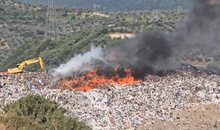

Tirana vote recount, Alimehmeti: CEC defended manipulation
2025-07-01 18:15:05

Left Flamurtari, striker signs with another Albanian club
2025-07-01 17:43:14
Accident on the Lezhë-Shëngjin axis, one injured
2025-07-01 17:19:35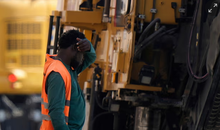
June temperature records, Italy limits outdoor work
2025-07-01 17:03:15

Meet Kozeta Miliku, named one of the top five scientists in Canada
2025-07-01 16:32:12
"Arsonist" arrested for repeatedly setting fires in Vlora (NAME)
2025-07-01 16:29:45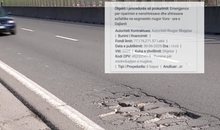
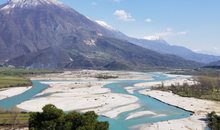
The ecological integrity of the Vjosa River risks remaining on paper
2025-07-01 16:09:40
Heat Headache/ Causes, Symptoms and Measures You Should Take
2025-07-01 16:01:13
UN: The world must learn to live with heat waves
2025-07-01 15:54:50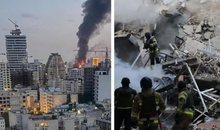
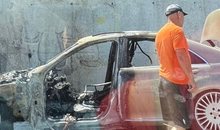
Three cars collide in Tirana, one of them catches fire
2025-07-01 15:38:16

Shehu: Whoever doesn't want Berisha, doesn't want the opposition 'war'!
2025-07-01 15:19:20
Berisha requests the OSCE Assembly: Help my nation vote freely
2025-07-01 15:11:46
Be careful with medications: Some of them can harm your sex life
2025-07-01 15:00:32

'Golden Bullet'/ Lawyers leave the courtroom, Altin Ndoc's trial postponed again
2025-07-01 14:44:52
EU changes leadership, Kosovo in a number of places
2025-07-01 14:40:01
Should we drink a lot of water? Experts are surprised: You risk hyponatremia
2025-07-01 14:30:20



Lëpusha beyond Rama's postcards: A village that is being silently abandoned
2025-07-01 13:41:56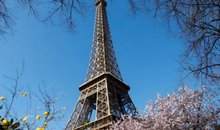
Scorching temperatures in France close the Eiffel Tower
2025-07-01 13:29:35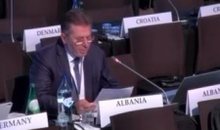
Media: China, Iran and North Korea, a threat to European security
2025-07-01 13:20:12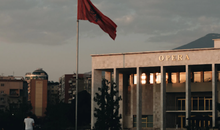
Albania drops in global index: Less calm, more insecure
2025-07-01 13:09:35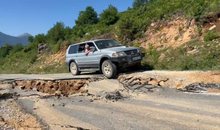
Road collapses, 5 villages in Martanesh risk being isolated
2025-07-01 13:03:04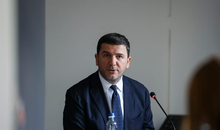

Këlliçi: Opposition action to be decided in September
2025-07-01 12:48:49
Four tips for coping with the heat wave
2025-07-01 12:38:53
Car hits pedestrian on Transbalkan road
2025-07-01 12:27:09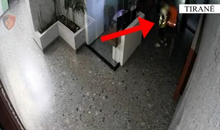
Authors of 9 robberies, Erjon Sopoti and Abdullah Zyberi arrested
2025-07-01 12:15:56

He abused his minor daughter, this is a 36-year-old man in custody in Fier
2025-07-01 11:50:34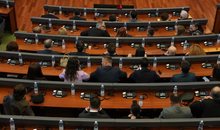
The constitution of the Kosovo Assembly fails for the 40th time
2025-07-01 11:40:08

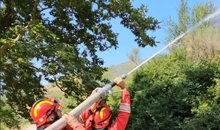


EU confirms support for the Western Balkans
2025-07-01 10:50:45
Serious in Fier! Father sexually abuses his minor daughter
2025-07-01 10:32:33
One year since the passing of the colossus of Albanian literature, Ismail Kadare
2025-07-01 10:25:26


They supplied the 'spaçators' with drugs, two young men are arrested in Tirana
2025-07-01 09:54:09
Europe is "scorching", how dangerous are high temperatures?
2025-07-01 09:48:56


Nigel Farage in Albania: but why?
2025-07-01 09:13:12
Xama: The "Partizani" dossier is quite weak and without facts!
2025-07-01 09:04:47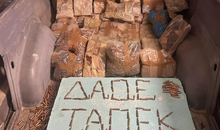

Foreign exchange, the rate at which foreign currencies are sold and bought
2025-07-01 08:35:39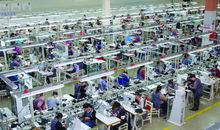
Fabricators again warn of factory closures and job cuts
2025-07-01 08:21:30
Horoscope, what do the stars have in store for you today?
2025-07-01 08:08:59
Scorching hot, temperatures reaching 40°C
2025-07-01 07:57:12
Morning Post/ In 2 lines: What mattered yesterday in Albania
2025-07-01 07:42:59
Recount after May 11, Braho: I had no expectations for massive vote trafficking
2025-06-30 22:54:18

Second hearing on the protected areas law, Zhupa: Unconstitutional and dangerous
2025-06-30 22:18:46



Israel-Iran conflict, Bushati: Albanians should be concerned
2025-06-30 21:32:42

Fuga: Journalism in Albania today in severe crisis
2025-06-30 21:07:11
"There is no room for panic"/ Moore: Serbia does not dare to attack Kosovo!
2025-06-30 20:49:53

Temperatures above 40 degrees, France closes nuclear plants and schools
2025-06-30 20:28:42
Lavrov: NATO is risking self-destruction with new military budget
2025-06-30 20:13:54
Turkey against the "Bektashi state" in Albania: Give up this idea!
2025-06-30 20:03:24

Accused of sexual abuse, producer Diddy awaits court decision
2025-06-30 19:40:44


